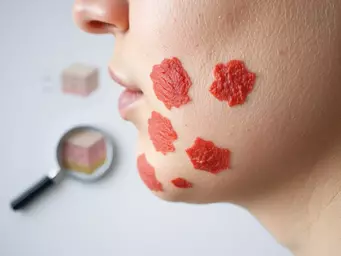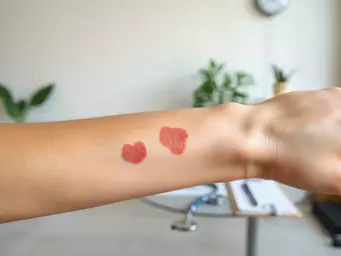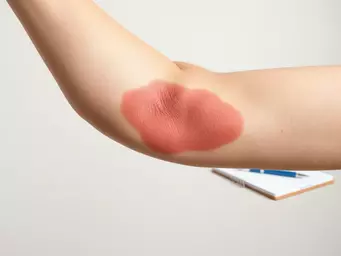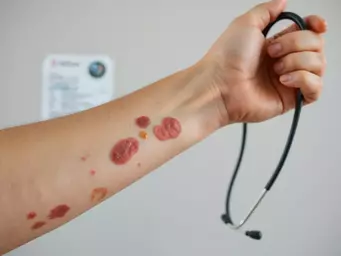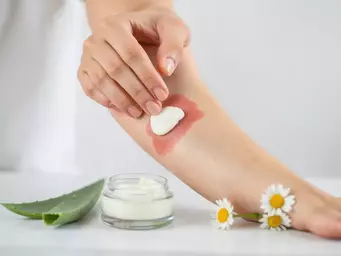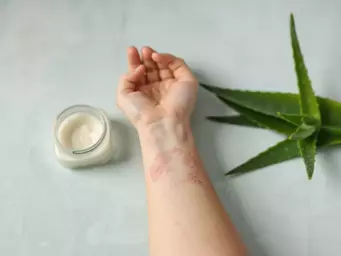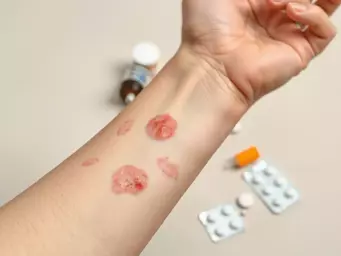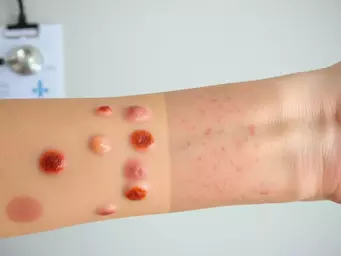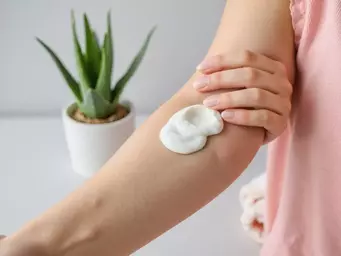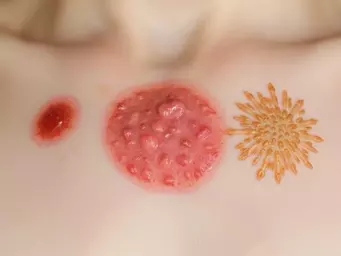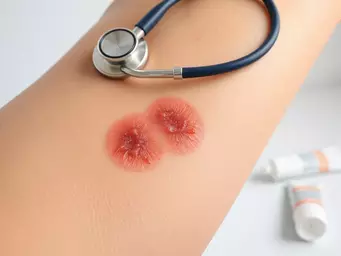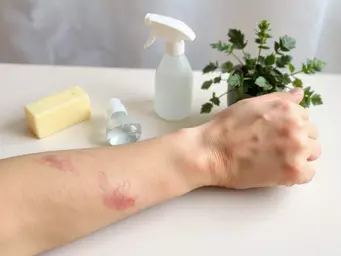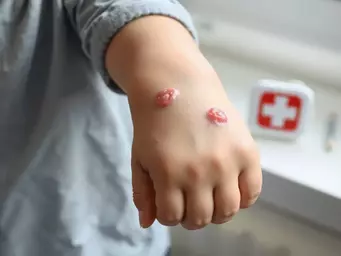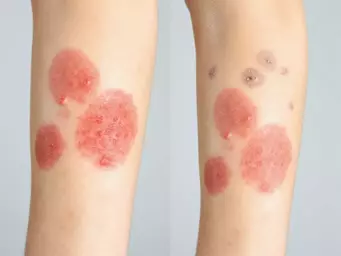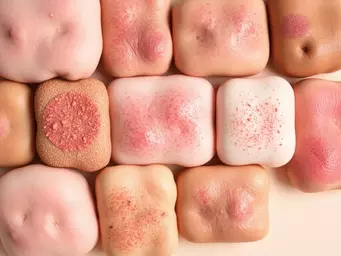Natural Remedies for Itchy Rashes

Have you ever felt a sudden itch that made you stop in your tracks? Itchy rashes are a common nuisance, but knowing their causes and symptoms can lead to quicker relief and better skin health.
What You Will Learn
- Common causes of itchy skin include allergic reactions, insect bites, skin conditions, and infections.
- Key symptoms to recognize are redness, scaling, bumps, blisters, and dryness.
- Being aware of personal allergens can help manage and prevent itchy rashes.
- Knowing when to seek medical attention is crucial, especially if the rash is widespread or accompanied by severe symptoms.
Key Triggers for Itchy Rashes and When to Seek Medical Attention
Understanding the common causes of itchy rashes and recognizing when professional medical care is necessary can help manage skin health effectively.
Common Causes of Itchy Rashes
- • Allergic reactions: Soaps, detergents, fabrics.
- • Insect bites: Mosquitoes, fleas, inflamed welts.
- • Skin conditions: Eczema, psoriasis, dermatitis.
- • Infections: Fungal (e.g., ringworm).
Key Symptoms of Itchy Rashes
- • Redness: Inflamed skin patches.
- • Scaling or flaking: Eczema, psoriasis.
- • Bumps or blisters: Insect bites, allergic reactions.
- • Dryness: Tight skin, especially with eczema.
When to Seek Medical Attention
- • Rash covers a large area.
- • Severe itching disrupting daily life.
- • Signs of infection (pus, fever, increasing redness).
- • Rash persists for more than a few days.
Urgent Signs Needing Professional Care
- • Rash is spreading rapidly.
- • Experiencing swelling or blistering.
- • Difficulty breathing or dizziness.
- • Home remedies are not helping.
Understanding Itchy Rashes: Causes and Symptoms
Itchy rashes can be uncomfortable and frustrating, but understanding their causes and symptoms is the first step toward relief. Many people experience itchy skin at some point in their lives, whether it's due to an allergic reaction, a skin condition, or something as simple as a bug bite. Let's explore some of the common triggers that can lead to these pesky rashes.
Common Causes of Itchy Skin and Rashes
There are various factors that can cause itchy skin and rashes. Here are some of the most common:
- Allergic reactions: These can occur from contact with irritants like soaps, detergents, or even certain fabrics.
- Insect bites: Mosquitoes, fleas, and other insects can leave behind itchy welts that may become inflamed.
- Skin conditions: Eczema, psoriasis, and dermatitis are some conditions linked to chronic itchiness.
- Infections: Fungal infections, such as ringworm, can lead to significant itchiness and rashes.
Knowing these causes can help you identify what might be triggering your symptoms. If you notice a rash following exposure to any of these factors, it’s essential to take action quickly to prevent further irritation.
Identifying Symptoms Associated with Itchy Rashes
Recognizing the symptoms of itchy rashes is crucial for effective treatment. Symptoms can vary widely, but here are some common signs to look out for:
- Redness: Many rashes present as patches of red, inflamed skin.
- Scaling or flaking: This can occur with conditions like eczema or psoriasis.
- Bumps or blisters: Insect bites or allergic reactions often cause raised areas on the skin.
- Dryness: Skin may feel dry and tight, especially with conditions like eczema.
Paying attention to these symptoms can help you gauge the severity of your rash. If it persists or worsens, seeking professional advice could be beneficial for your skin health.
Understanding Allergies and Their Role in Itchy Skin
Allergies are a leading cause of itchy skin and rashes. When your body reacts to a substance (called an allergen), it can trigger an immune response that manifests as a rash. Common allergens include:
- Pets (like fur or dander)
- Food items (such as nuts, dairy, or shellfish)
- Pollens and dust mites
- Certain medications
Being aware of your personal triggers can empower you to manage your skin better. Keeping a journal of any rashes and their associated situations can help you identify patterns!
Pro Tip
Did you know that keeping a detailed skin journal can significantly improve your ability to identify triggers for your itchy rashes? By noting when a rash occurs, what you were doing, and any products you used, you can help pinpoint the culprit and discuss it more effectively with your healthcare provider.
When to Seek Medical Attention for Itchy Rashes
It can be frustrating to deal with itchy rashes that just won't go away! While many cases can be managed at home with natural remedies, some situations require the expertise of a healthcare professional. Knowing when to seek medical attention is essential for your skin health and comfort.
Here are some signs that indicate it’s time to consult a doctor:
- The rash covers a large area of your body.
- You experience severe itching that disrupts your daily life. The National Eczema Association provides valuable insights into managing persistent itch.
- There are signs of infection, such as pus, fever, or increasing redness.
- The rash persists for more than a few days without improvement.
- You have a history of allergies or skin conditions that complicate your symptoms.
If you notice any of these symptoms, don’t hesitate to reach out for professional care! Early intervention can make all the difference in your recovery and overall comfort.
Signs Indicating Professional Care is Needed
Identifying the right moment to seek professional help can sometimes be tricky. It’s important to trust your instincts! If you notice any of the following signs, it’s definitely time to get in touch with a dermatologist:
- The rash is spreading rapidly.
- You’re experiencing swelling or blistering.
- There are additional symptoms like difficulty breathing or dizziness.
- You’ve tried home remedies, but nothing seems to help.
Feeling overwhelmed by a persistent rash can lead to a lot of discomfort. Remember, seeking help is a proactive step toward achieving healthy skin!
Understanding Eczema, Psoriasis, and Other Chronic Conditions
Chronic skin conditions like eczema and psoriasis often require specialized treatment. These conditions can cause intense itching and discomfort, making it vital to understand their specific symptoms and triggers. Understanding these chronic conditions can empower you to manage them more effectively.
- Eczema: Often appears as dry, red patches and can be triggered by allergens, stress, or irritants.
- Psoriasis: Characterized by thick, silvery scales that can cause significant discomfort and may require prescription treatments.
- Contact Dermatitis: A rash resulting from contact with a substance that irritates the skin or causes an allergic reaction. Research published in PMC NCBI highlights the various forms and treatments of contact dermatitis.
Each of these conditions can have unique triggers and treatments, so consulting with a dermatologist can help tailor a management plan that suits your needs. Early diagnosis can pave the way for effective treatment!
Frequently Asked Questions About Itchy Rashes
- Q: What are the most common causes of itchy rashes?
- A: Itchy rashes are frequently caused by allergic reactions (e.g., to soaps, fabrics), insect bites, underlying skin conditions like eczema and psoriasis, and fungal infections such as ringworm.
- Q: What symptoms should I look for to identify an itchy rash?
- A: Key symptoms include redness, scaling or flaking of the skin, the presence of bumps or blisters, and dryness. The specific presentation can vary depending on the cause.
- Q: When is it necessary to seek medical attention for an itchy rash?
- A: You should consult a doctor if the rash covers a large area, causes severe itching that disrupts daily life, shows signs of infection (pus, fever, increasing redness), persists for more than a few days, or if home remedies are ineffective. Urgent medical care is needed if you experience rapid spreading, swelling, blistering, difficulty breathing, or dizziness.
- Q: How do allergies contribute to itchy skin?
- A: Allergies trigger an immune response when your body comes into contact with specific allergens (e.g., pet dander, certain foods, pollen, medications). This response can manifest as an itchy rash. Identifying and avoiding personal triggers is crucial for management.
- Q: What are eczema and psoriasis, and how do they relate to itchy rashes?
- A: Eczema and psoriasis are chronic skin conditions that cause intense itching and discomfort. Eczema often presents as dry, red patches, while psoriasis is characterized by thick, silvery scales. Both conditions have unique triggers and symptoms that often require specialized dermatological treatment for effective management.
Recap of Key Points
Here is a quick recap of the important points discussed in the article:
- Common Causes: Itchy rashes can be caused by allergic reactions, insect bites, skin conditions, and infections.
- Symptoms to Watch: Look for redness, scaling, bumps, and dryness as key indicators of rashes.
- Allergies Matter: Common allergens include pet dander, food items, pollens, and certain medications.
- When to Seek Help: If the rash is widespread, severe, or persistent, consult a healthcare professional.
- Chronic Conditions: Understanding conditions like eczema and psoriasis is crucial for effective management.



